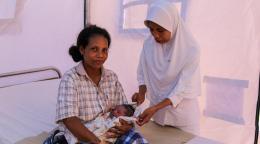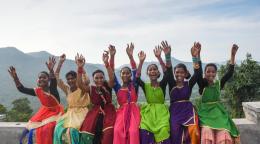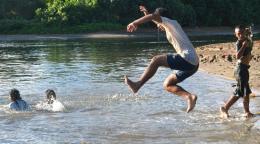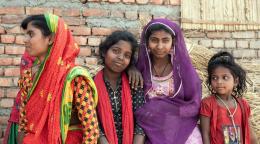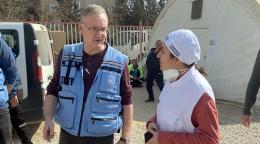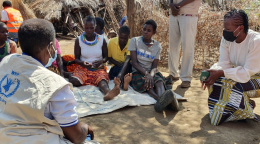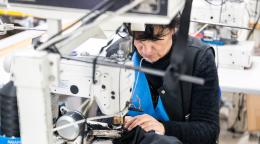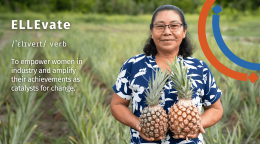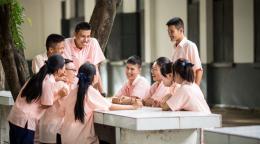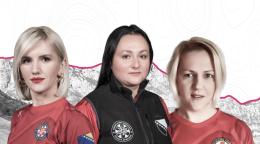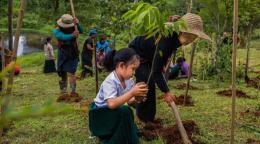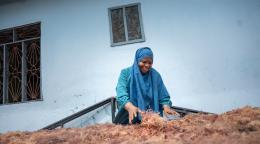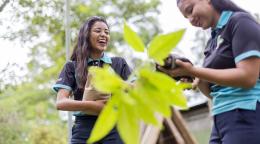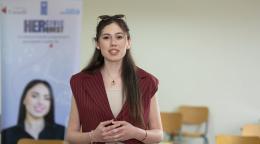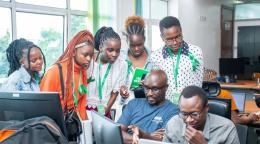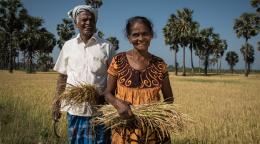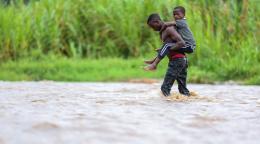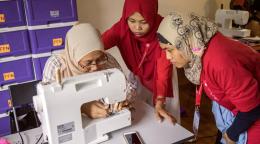Clicks to Progress: Jordanian Youth Leverage Digital Transformation for Sustainable Development
The United Nations in Jordan prioritizes empowering youth as a key strategy in achieving the Sustainable Development Goals (SDGs). With 40.5 per cent unemployment rate among young people aged 20-24 years in Jordan, the need for equipping them with essential skills, particularly digital ones, is critical. Through various programmes, the UN works closely with young people, providing them with the tools needed to navigate and thrive in the current job market.
Digital Skills Essential for Youth to Learn and Earn: Salah Al-Din's Story
"I would consciously observe and be fascinated with how technology can uplift communities and make life easier in so many ways. I saw an opportunity and wanted to be part of this world," says 20-year-old Salah Al-Din.
Before entering university, Salah Al-Din followed his passion and joined the UN Children’s Fund (UNICEF)-supported programme- Digital Skills for a Better Future. Informed by research on the needs of the Jordanian job market, and in partnership with Jordan’s Ministry of Digital Economy and Entrepreneurship (MoDEE) and Digital Opportunity Trust (DOT), the programme aims to bridge the digital divide and enhance vulnerable young people’s employability by equipping them with demand-driven digital skills. It also links them with income-generating opportunities in both the formal and gig economy.
Over one and a half months, Salah Al-Din received training in essential digital skills, covering computer and operating systems, internet usage, email functionalities, Microsoft Office applications, and cloud storage. Additionally, he later joined advanced digital training for creative careers and gained advanced graphic design skills. “I was learning what I love, and I also really liked how the trainers made us work in groups, explaining the importance of teamwork in the workplace,” he adds. The programme also provided him with financial literacy training, enabling him to create and manage his own e-wallets.
Now a first-year university student majoring in software engineering, the digital skills he learned are helping boost his academic performance, as much of the coursework is done digitally and online. He has also found several freelancing opportunities. For Salah Al-Din, the best thing about these opportunities is how he feels about progressing in his career. “I feel motivated to keep learning and growing. There is still so much to learn, and the more I do, the more opportunities will come.”
Since its launch in 2019, more than 9,520 young people from across Jordan have participated in UNICEF’s Digital Skills for a Better Future programme, which is supported by Chloé, the Korea International Cooperation Agency (KOICA), and the Government of the Netherlands through the Prospects partnership.
Empowering Digital Futures: Maria's Journey Through the "Me and My Mobile" Course
At just 15, Maria discovered a gateway to new possibilities through the "Me and My Mobile" course. Growing up in Sweileh, an underprivileged district in Amman, she faced limited access to digital tools. "We started computer lessons in school in the 7th grade, but they were very theoretical," Maria explained. Without a personal computer or mobile phone, she often relied on borrowed devices for school assignments.
The course, held at the Zain Innovation Campus (ZINC) and initiated by United Nations Population Fund (UNFPA) Jordan, aimed to enhance digital literacy among girls like Maria. It introduced her to online educational platforms, apps, and digital marketing strategies. "I even helped my mother in promoting her online business," Maria shared.
A major component of the course was cybersecurity. Maria learned vital skills in securing personal information and navigating digital spaces safely. "During the session on cybercrimes and online harassment, I realized that no one ever gave me information on what to do if I was a target of cybercrime," she said. The knowledge empowered her to protect herself and understand that "the shame belongs to the perpetrator, not me."
For Maria, the experience of taking the course, sparked her interest in potentially pursuing a degree in Cyber Security, challenging gender norms that might limit her career choices. "When women and girls develop knowledge in ICT, they gain the confidence to become agents of change in digital economies of the future," she added.
Over eight weeks, Maria and 18 other adolescent girls attended sessions where they learned to create and secure their email accounts, capitalize on social media marketing and online income generation opportunities, and develop their financial management skills. They also learned about business-friendly mobile apps and the Amaali app for reporting gender-based violence, finding ways to recognize and cope with cybercrime, online harassment, cyberbullying, and cyberstalking.
Maria has emerged not just as a beneficiary of new knowledge but as a potential influencer in the digital realm. With the UNFPA in Jordan, in partnership with the Institute for Family Health and Zain Telecom Company, the course has empowered over 150 women and girls from disadvantaged communities since its launch in 2019.
Jordanian Youth Pioneering Digital Literacy: The Impact of Youth Media Literacy Ambassadors Programme
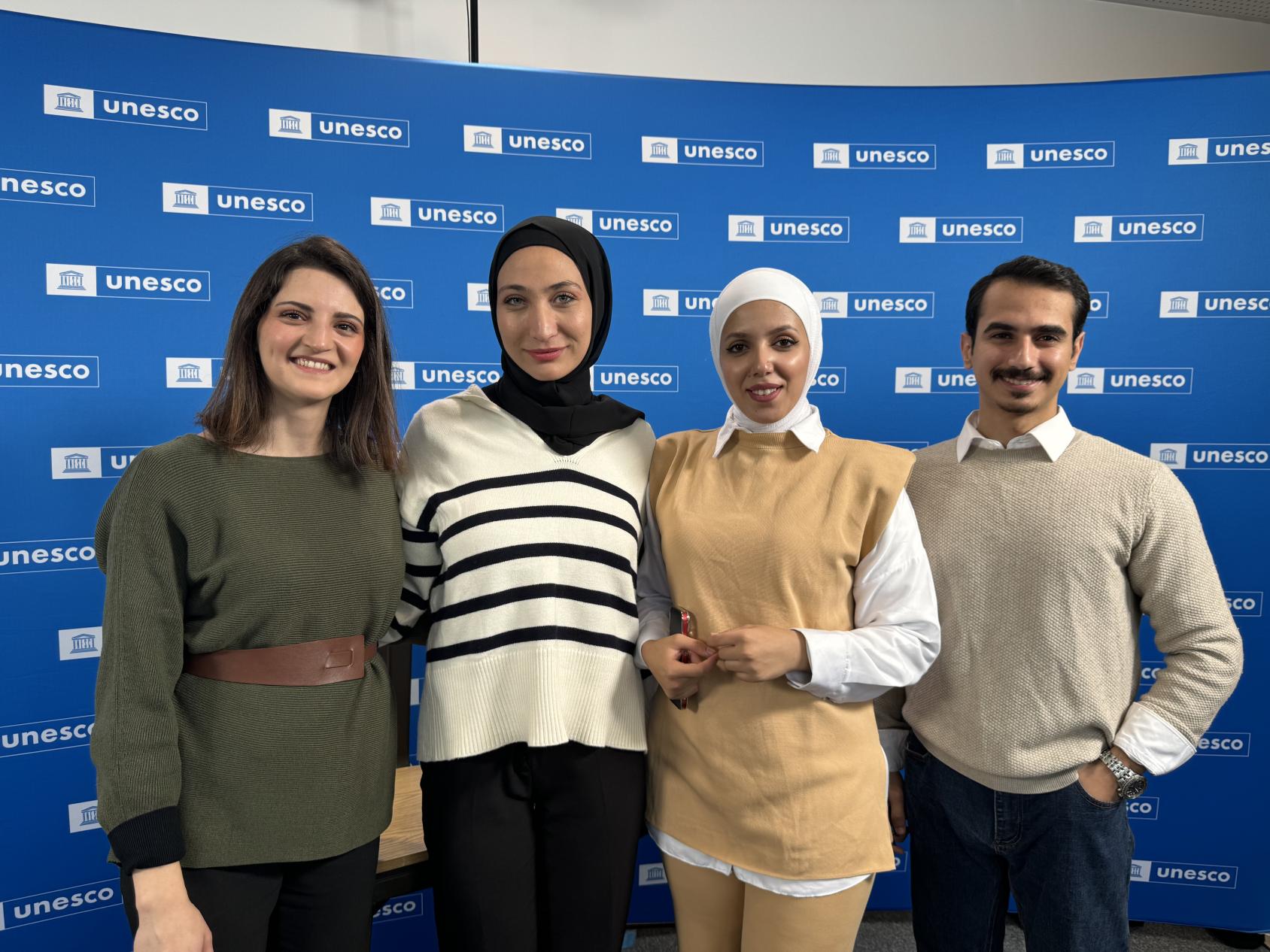
The Youth Media Literacy Ambassadors Programme (YMLAP) from Jordan, pioneered by the dynamic young quartet of Saja, Sam, Mohammad and Wasan have developed an innovative approach to combating misinformation and fostering media literacy in their community.
The programme nominates urban youth in Jordan as media literacy ambassadors. These young leaders are empowered to educate their peers and communities through campaigns and events that promote critical thinking and information literacy. Saja's journey began with a personal realization of the challenges posed by misinformation in Jordan. Growing up, she saw how her peers struggled to navigate the digital world, often falling prey to false information. This motivated her to create a project that would equip young people with the skills needed to combat misinformation and foster a more informed society. This innovative approach led them to win the UNESCO Media and Information Literacy (MIL) Youth Hackathon in 2023.
Supported by the Multi-Donor Programme on Freedom of Expression and Safety of Journalists, UNESCO provided participants of the Hackathon with a two-day online mentorship programme. This intensive training, led by experts from UNESCO and renowned international professionals, equipped young innovators with essential skills in media literacy and coding.
Jordan's YMLAP was recognized for its outstanding community-based intervention, highlighting the project's commitment to enhancing media literacy in digital spaces. These exceptional teams presented their projects at the Youth Forum and UNESCO’s General Conference Partnerships Hub, where they received awards for their significant contributions.
Participating in UNESCO’s mentorship programme in September 2023 was a turning point for the team from Jordan. They learned the importance of community engagement, ensuring their initiatives were culturally relevant and responsive to local needs. This hands-on approach led to the organization of community forums and workshops, fostering a sense of ownership and sustainability within the community.
Since then, the programme has made significant strides. They integrated Media, Information and Literacy with the Civic Participation Discipline and joined the U.S. Jordan Leadership Exchange programme. These experiences provided invaluable insights and networks, enhancing YMLAP’s capacity to promote MIL education in Jordan and leading to new partnerships and collaborations.
Jordanian youth are leading the way in digital literacy. By fostering critical thinking and promoting media literacy, they are creating a more informed and resilient society. Their journey from clicks to progress is a powerful testament to the potential of youth to drive sustainable development in the digital age.
This story is a compilation of narratives contributed by UNICEF, UNFPA, and UNESCO.
